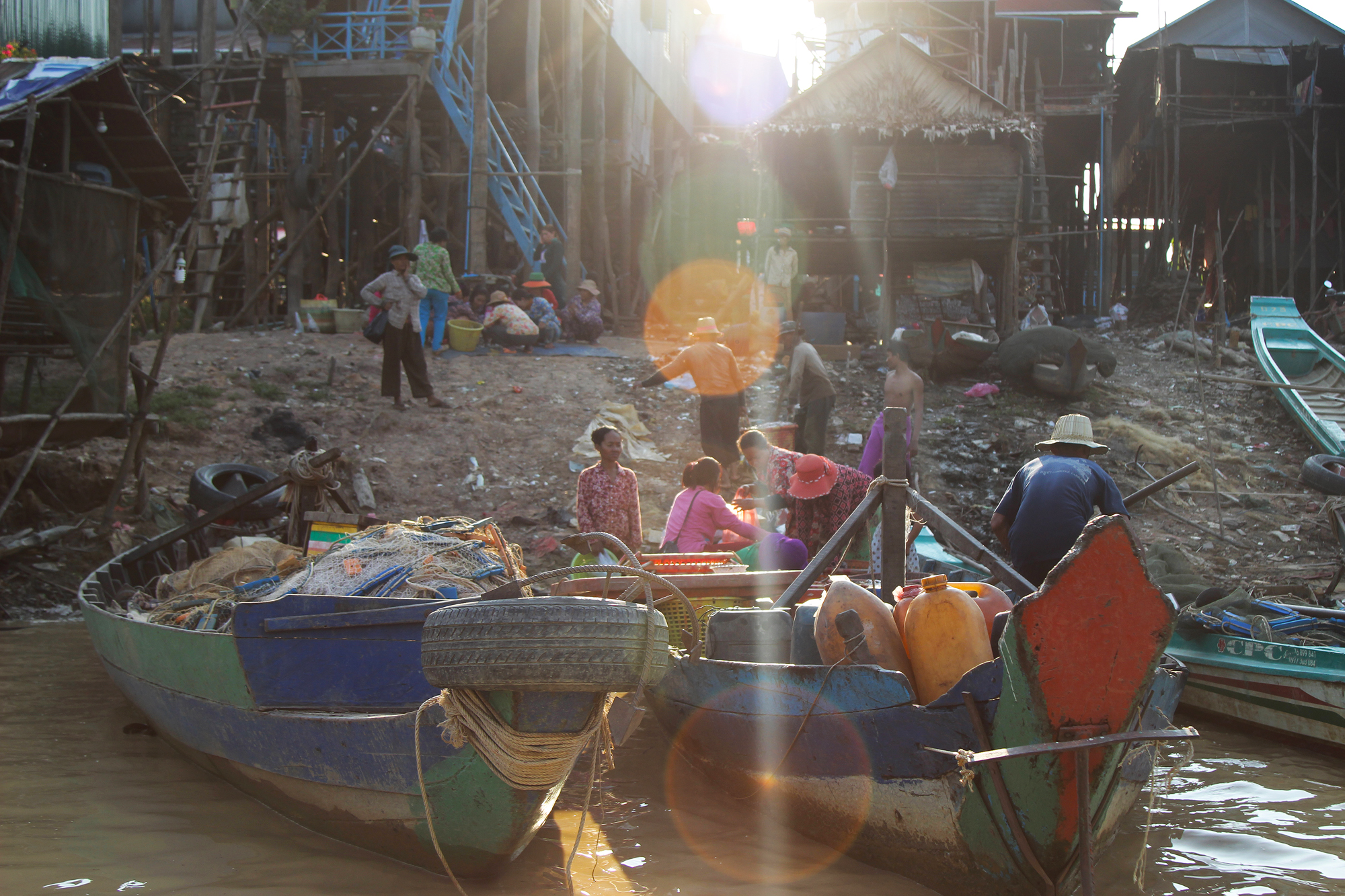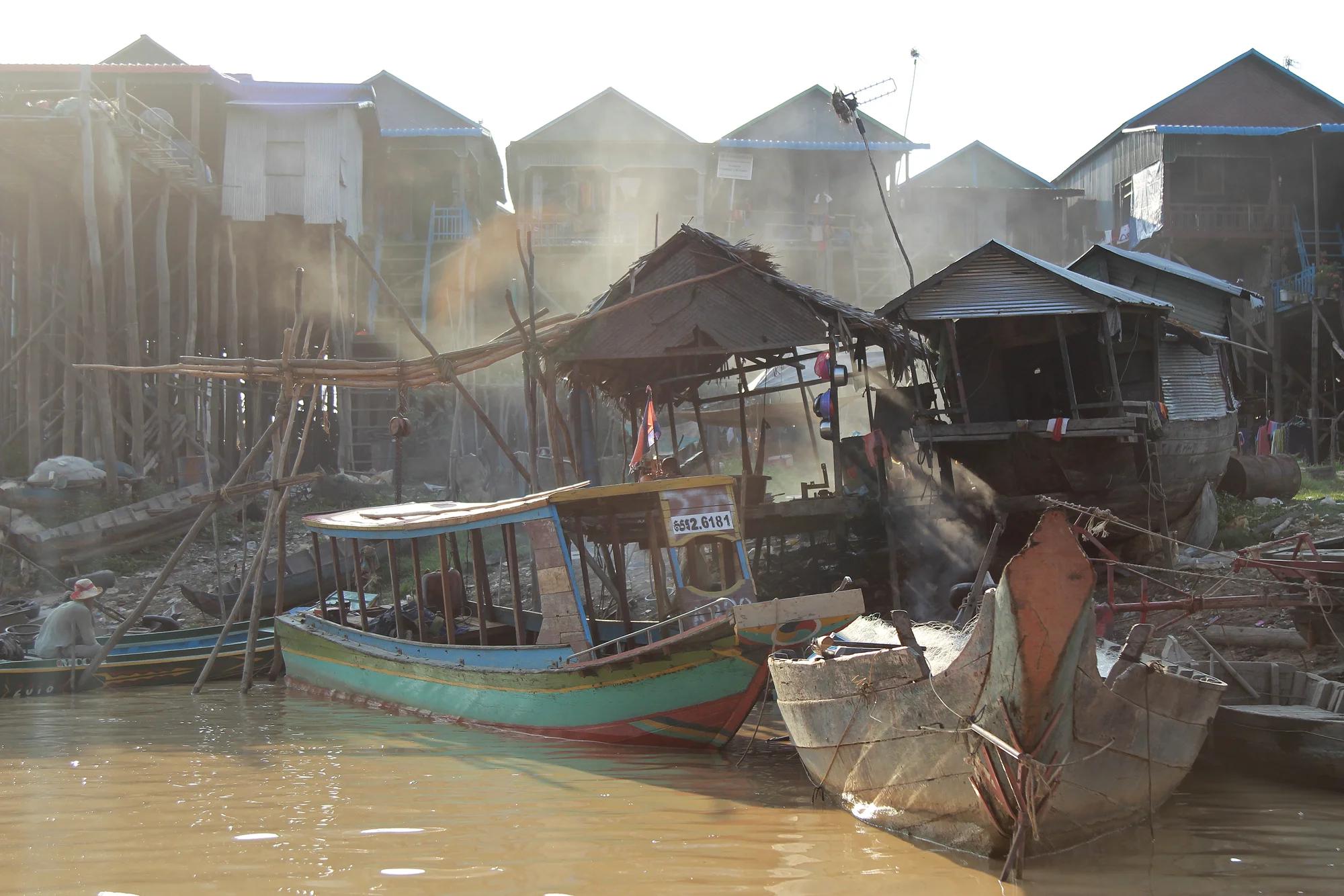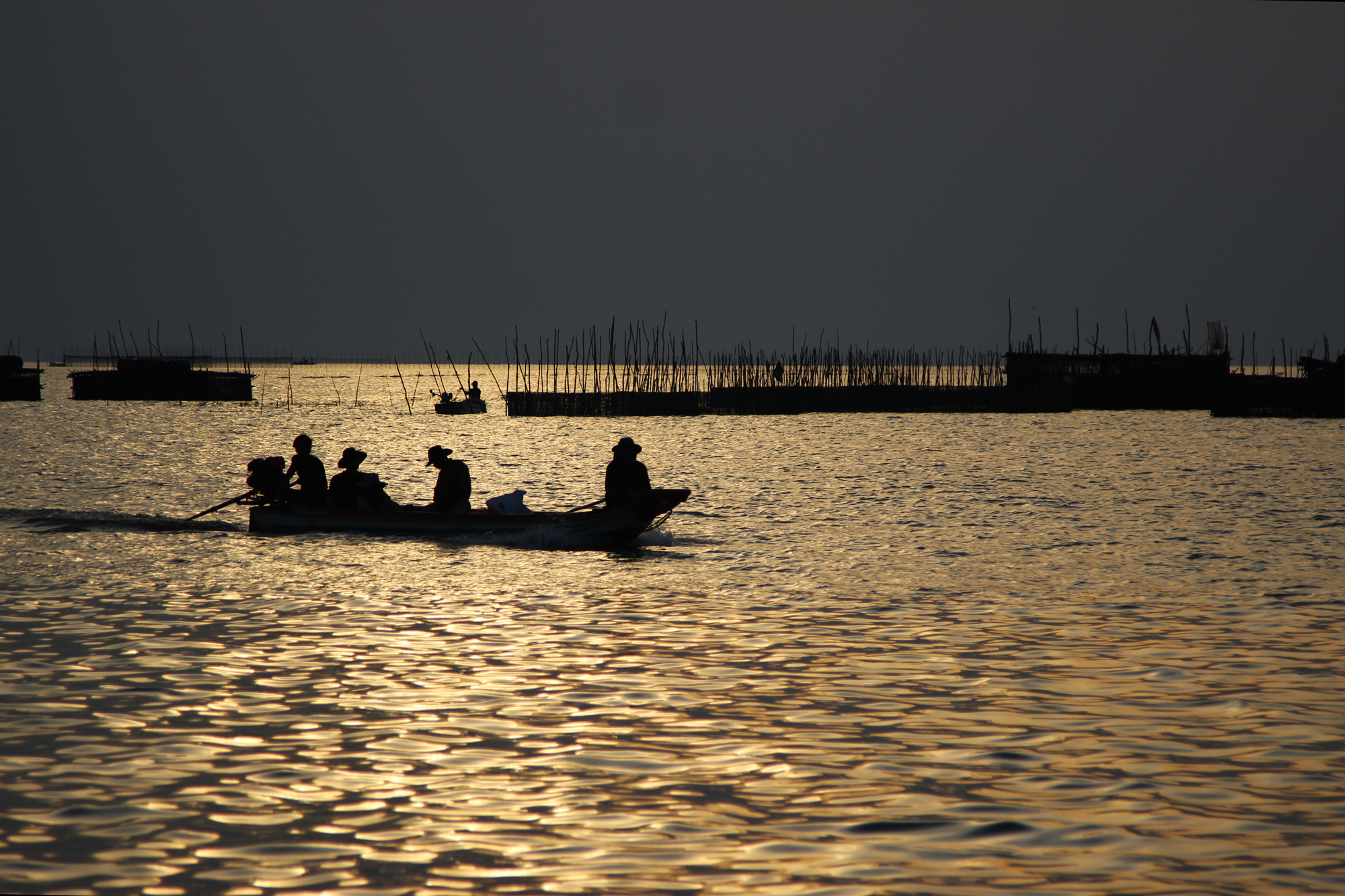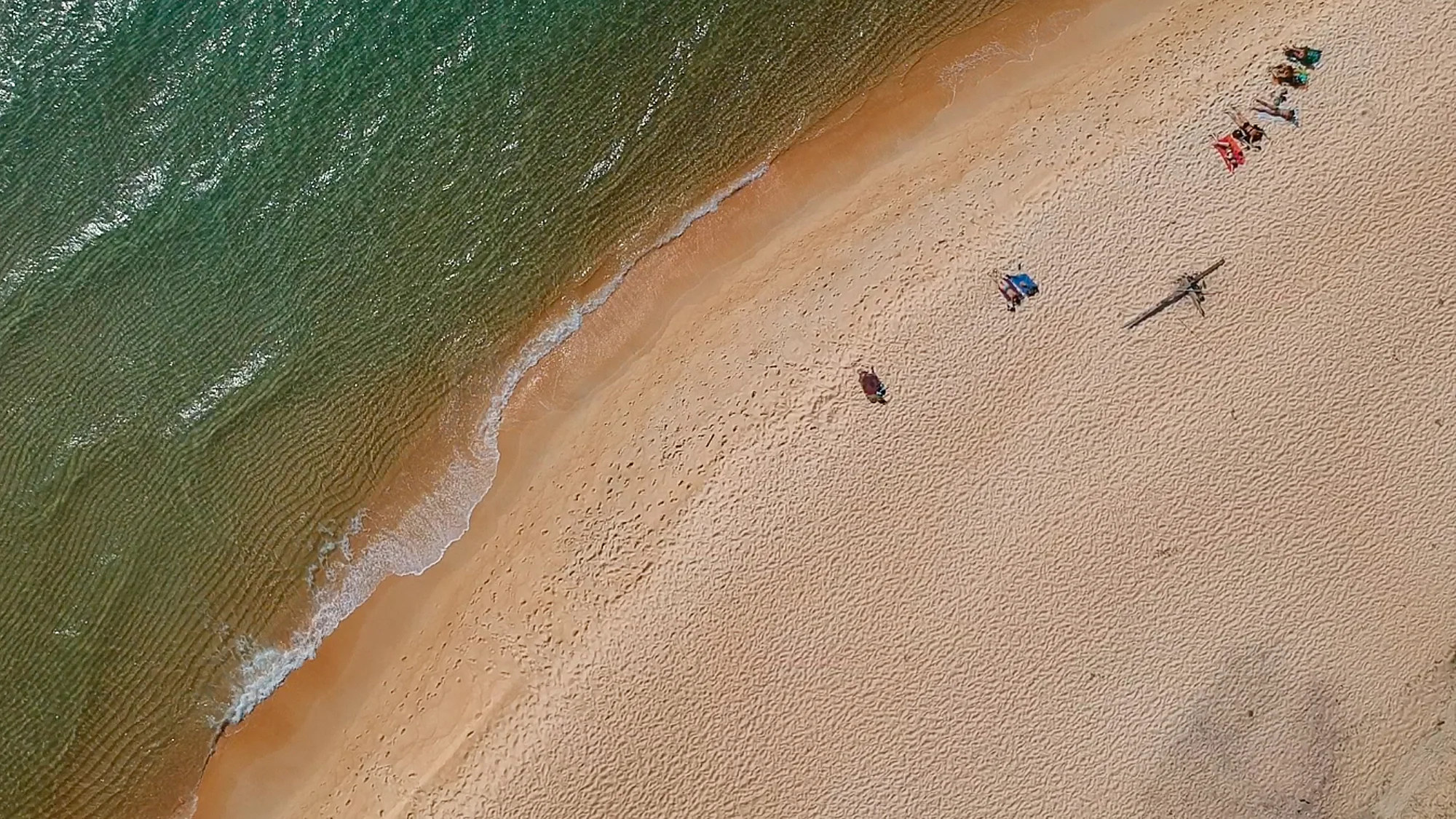Life on the water

What was the last thing your kid played with?
Minecraft? Fortnite? Slime?
Ever seen them throw a tantrum over a toy?
Do they have the latest version of the coolest thing that all their friends have?
Have they pushed their luck with that letter to Santa?
It’s easy to get used to a life full of stuff. Until, that is, you visit a world with none.
A girl, no more than six, is staring us straight in the eye from the muddy riverbank. She watches the boats go by in silence — her television for the day, her non virtual reality. Her house towers above her on spindly legs, waiting for the water to return. This is the stilted village of Kampong Phluk. And this is her life.
Tina, our tuk tuk driver, who dreams big and studies Japanese while waiting for us to get our acts together, has driven us out through dusty air and juddering road to Tonle Sap. The largest freshwater lake in South East Asia is a spectacle in itself, all glittering surface and huge skies. It’s a welcome break from the heat and crowds of Angkor Wat, but that’s not what we’re here for. We’ve come to see how a community lives out their lives in the strangest of circumstances.
The village of Kampong Phluk, built out on the floodplain and home to around 5000 people, is a surreal sight in dry season. Metal shacks and basic houses perch six metres up, their wooden stilts naked, exposed. Fishing baskets hang redundant in mid-air. Flashes of rainbow laundry hang from walls of corrugated rust. A church, marked only by its scarlet cross, stands as a beacon of hope. Slim tailboats are parked in front of houses, like cars in a driveway, ready to carry the residents to floating schools, community centres and temples.
We cough. There is smoke billowing through the scene like dry ice across a stage set. Great cauldrons sit over flames, making warmth and making dinner. Someone shouts and a gaggle of siblings race barefoot towards the fire and the food. They’ll celebrate with a festival when the water rises up to their doorsteps again, but for these few months the space under their homes becomes a den, a playground and a family kitchen.
Though the population here is mostly made up of fishing families, recent years of depleted stocks mean that many fishermen have had to shift careers, either turning to farming or steering the tourist boats through the waterways to supplement their incomes.
Our boat moves on through their up and down lives, past childhoods a world away from our own. Further along the bank, another child jumps a rope, dust kicking up as she skips. A group of friends dribble a makeshift ball around the stilts. From the brown water below us, a teenager grins up as we pass, just having a swim. This is their normal.
We’re the last ones out as the light fades, the other tourists long gone in search of the sunset. And with less of an audience, the banter starts. Boat owners spray each other with the muddy water, Khmer jokes fly between water and bank. The kids play on. Nobody has much. But nobody’s sad. Nobody’s complaining.
Back home, we worry when our kids don’t have enough. We worry that they have too much. We worry they’ll be bored. We worry about worrying. We worry in the way that only the privileged can.
And suddenly, we’re uncomfortable being comfortable.
Because all we can think of is how easy we have it.
How pampered our lives.
How little the world owes us.
How lucky are we?






















